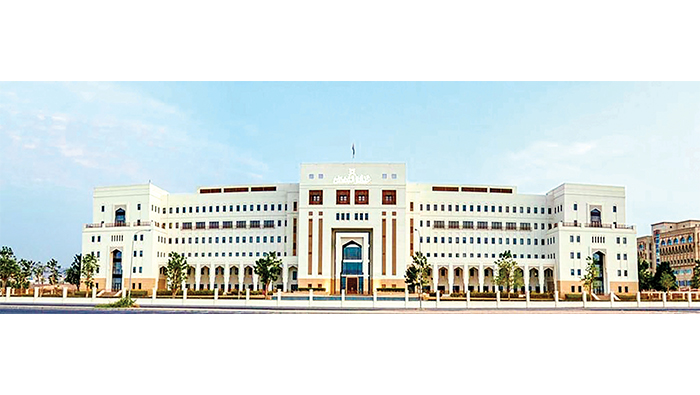

Muscat: The Ministry of Labour (MoL) received nearly 24,000 complaints in 2022 with more than half related to wages of employees. According to the Ministry of Labour, more than 13,000 complaints received last year were concerning wages.
The ministry has taken a strong view of the issue and is making all efforts to protect the rights of the workers by introducing the Wages Protection System (WPS).
The Ministry of Labour’s primary objective is to promote the progress of both private sector enterprises and their employees, safeguarding their interests and ensuring stability in accordance with modern requirements.
The Ministry of Labour is a key contributor to the plans and strategies of the Sultanate of Oman’s government to safeguard the rights of workers in private sector establishments, which are the cornerstone of Oman Vision 2040.
The WPS aims to establish a national framework that will propel the country toward a new and orderly future.
The protection of wages is to ensure fair pay for workers. It is seen as a positive step towards improving working conditions and enhancing the welfare of all parties involved.
The Wages Protection System (WPS) is an electronic tool created by the Ministry of Labour and the Central Bank to supervise and track wage payments in private sector businesses, guaranteeing their compliance with the Labour Law by transferring worker salaries to their bank accounts.
The Ministry of Labour, as the competent authority, is immediately notified once the salary is transferred. This system maintains a steady process of salary distribution, while also monitoring any delays in payment, allowing the ministry to take preventive measures to ensure workers receive their pay and prevent any labour disputes, strikes, or work stoppages due to delayed payments.
WPS is deemed to be a vital part of economic reform, aimed at safeguarding the earnings of private sector employees and establishing a precise database of their salaries. Its implementation is in accordance with Article (53) of the Labour Law, which states that the employer will not be cleared of the employee’s salary unless the salary is deposited in the employee’s account at one of the locally approved banks. A resolution by the Minister of Labour may determine the exceptions where the employee’s salary may not be deposited in his account.
The system’s primary aims are to guarantee that workers receive their wages as stipulated by the Labour Law, as well as ensure the registration of the local workforce in social insurance and the timely payment of their contributions.
The system aids in the ease of research and resolution of labour disputes concerning wages by providing valuable wage transfer data. Additionally, it simplifies the process of wage transfer to banks through a standard formula, while also protecting employers and providing evidence of worker claims regarding unpaid wages.
This system promotes a stable employer-worker relationship, increases productivity, and minimises wage-related conflicts.
The recently introduced system aims to streamline the process of applying for various services provided by the ministry that require the attachment of wage-proof documents, including manpower recruitment permits, wage adjustments, and work leave reports. The system eliminates the need for individuals to attach physical wage files as verification can now be completed electronically through the platform. This results in a significant reduction in both time and effort expended by applicants.
The introduction of this system is part of the Ministry of Labour’s ongoing efforts to achieve its goal of producing satisfactory results for all parties involved. The system promotes transparency, which will benefit all parties in the future, and contributes significantly to the development of the labour market and the stability of its
environment.
It has also had a positive impact on the small commercial private sector enterprises, as they are now obligated to open bank accounts for their expatriate workforce whose salary is less than one hundred Omani riyals. Additionally, private sector institutions are required to update the wages of their workforce in the Ministry’s
database.
It should be noted that the method for bank transfers of wages in the Sultanate of Oman varies depending on the transfer formula used by institutions and employers. In some cases, the transfers may not be reflected in statistics and monitoring ratios by the Central Bank and Ministry of Labour. To ensure that all transfers are included within the wage system and accurately reported, the ministry is taking steps to protect the rights of workers and companies. This will provide more precise percentages for each establishment and employer, and safeguard the interests of all parties involved.